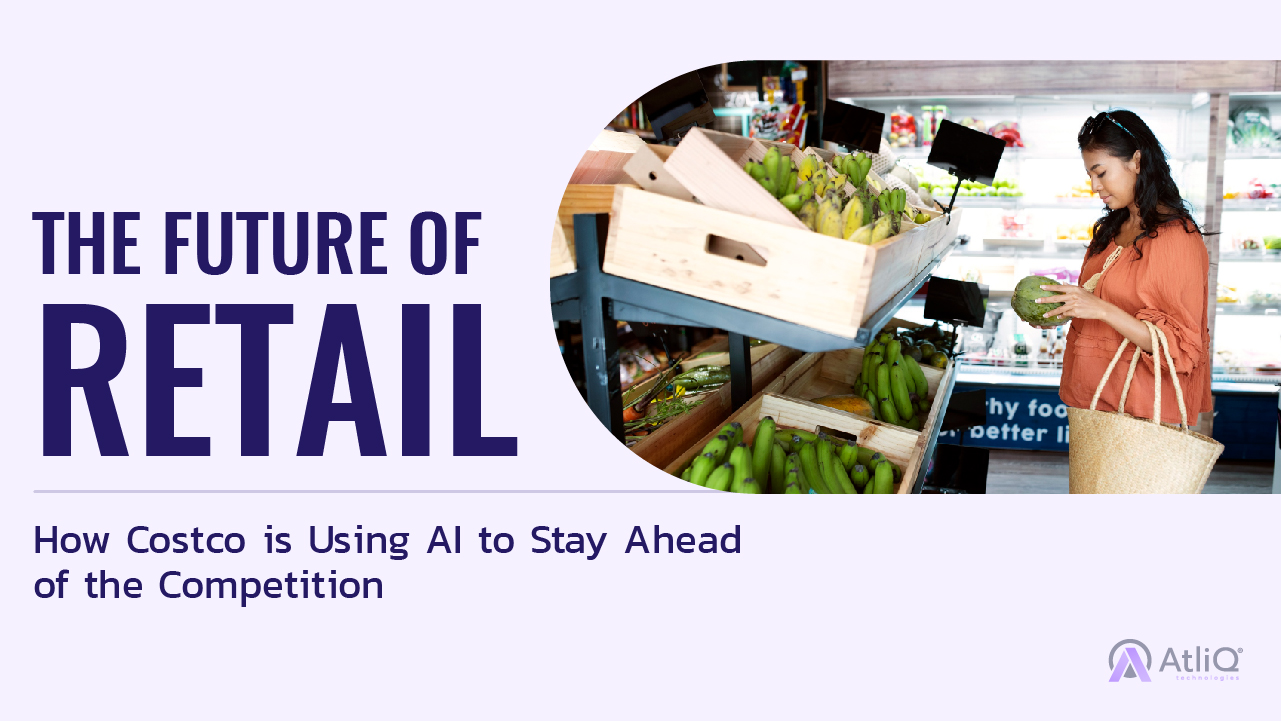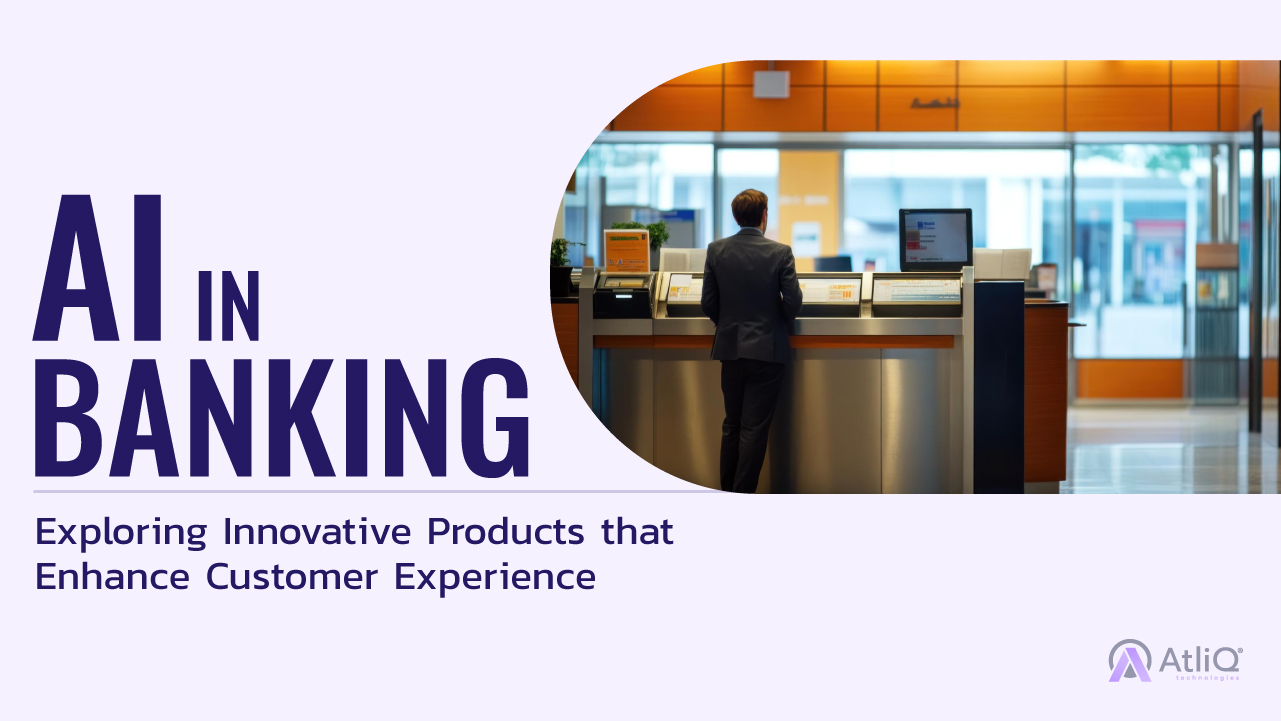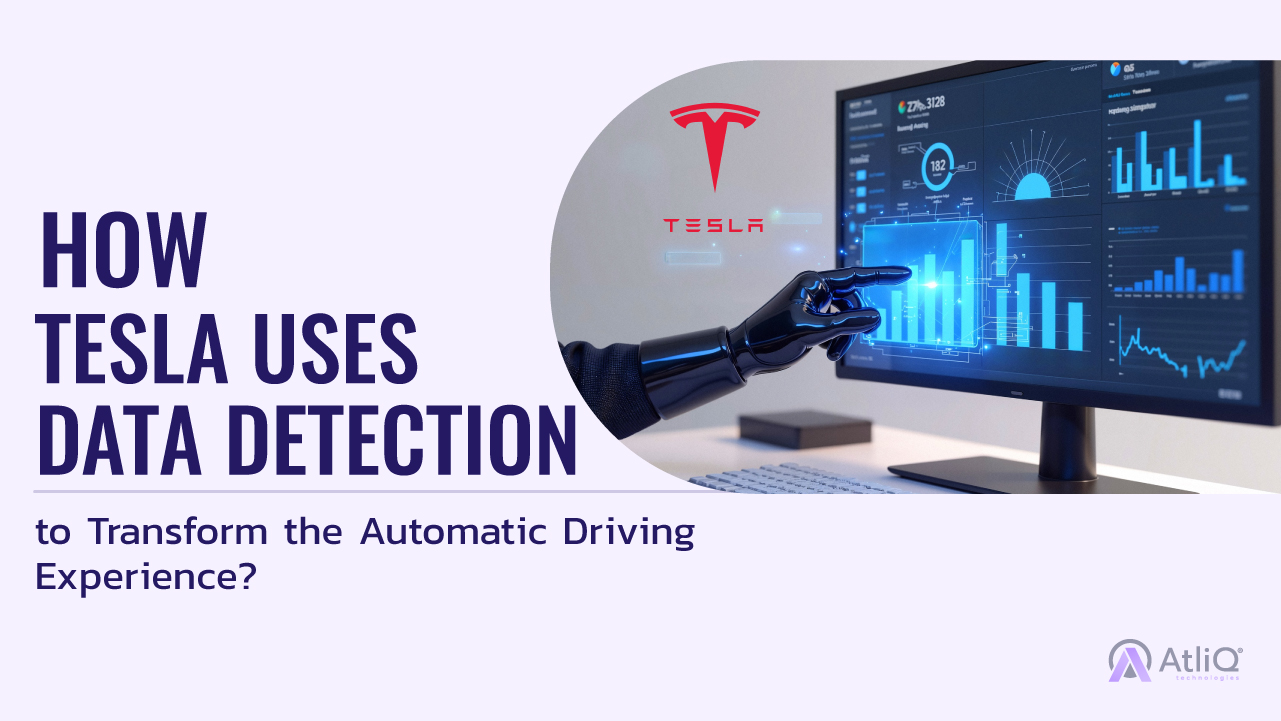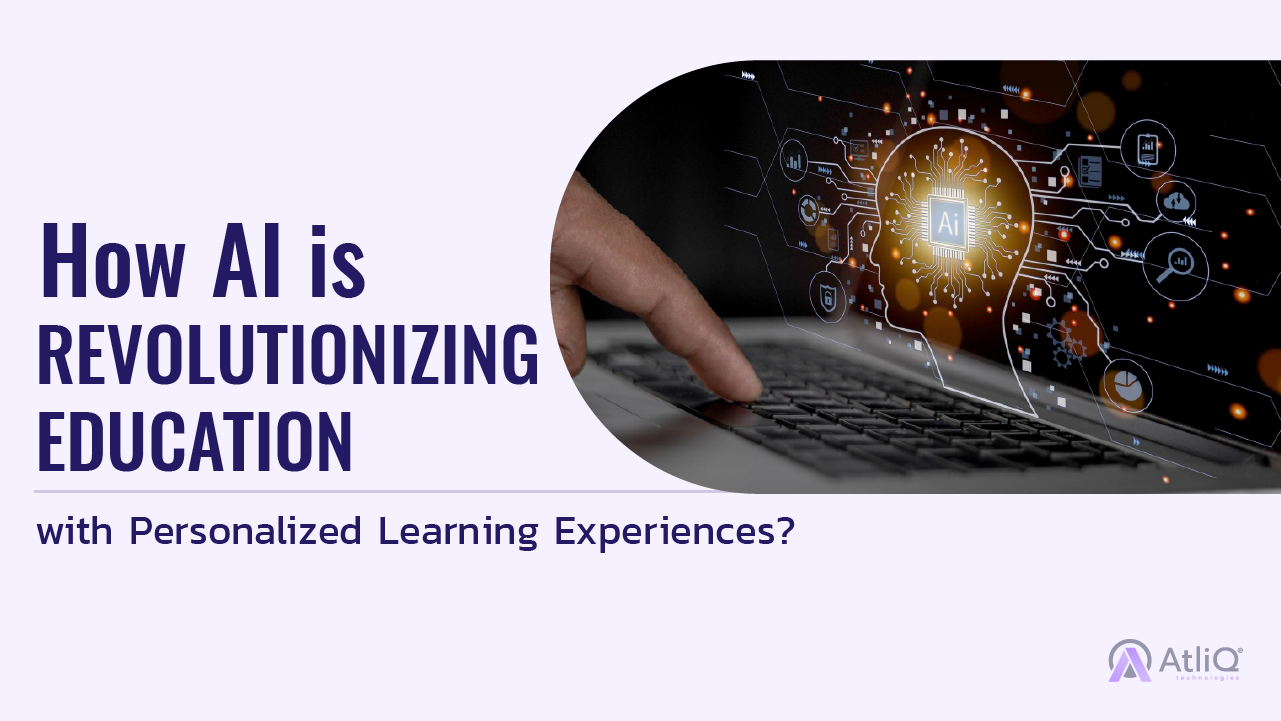
In an era where technology seems to touch every aspect of our lives, education is undergoing a profound transformation. Imagine a classroom where each student’s learning experience is uniquely tailored to their individual needs, preferences, and pace. This isn’t a distant dream but a rapidly unfolding reality, thanks to the revolutionary impact of artificial intelligence (AI). The concept of personalized learning has moved from buzzword to breakthrough, and AI is at the heart of this evolution, reshaping how we approach education.
Gone are the days of one-size-fits-all instruction. Today, AI-driven tools are not just enhancing the learning experience but are fundamentally redefining it. From adaptive learning platforms that adjust to each student’s needs in real time to sophisticated analytics that provide insights into learning patterns, AI is making education more responsive, engaging, and effective than ever before.
In this blog, we’ll dive into how AI is powering this personalized learning revolution, explore the benefits and challenges, and look ahead at what the future holds for this exciting frontier in education. Join us as we unravel the ways AI is transforming classrooms into dynamic, individualized learning environments where every student can thrive.
Definition of Personalized Learning
Personalized learning refers to an educational approach that tailors teaching and learning experiences to meet the individual needs, strengths, and interests of each student. Unlike traditional one-size-fits-all methods, personalized learning aims to provide a customized educational experience by accommodating diverse learning styles, paces, and preferences. The goal is to enhance student engagement and achievement by addressing each learner’s unique profile, including their academic abilities, prior knowledge, and personal interests.
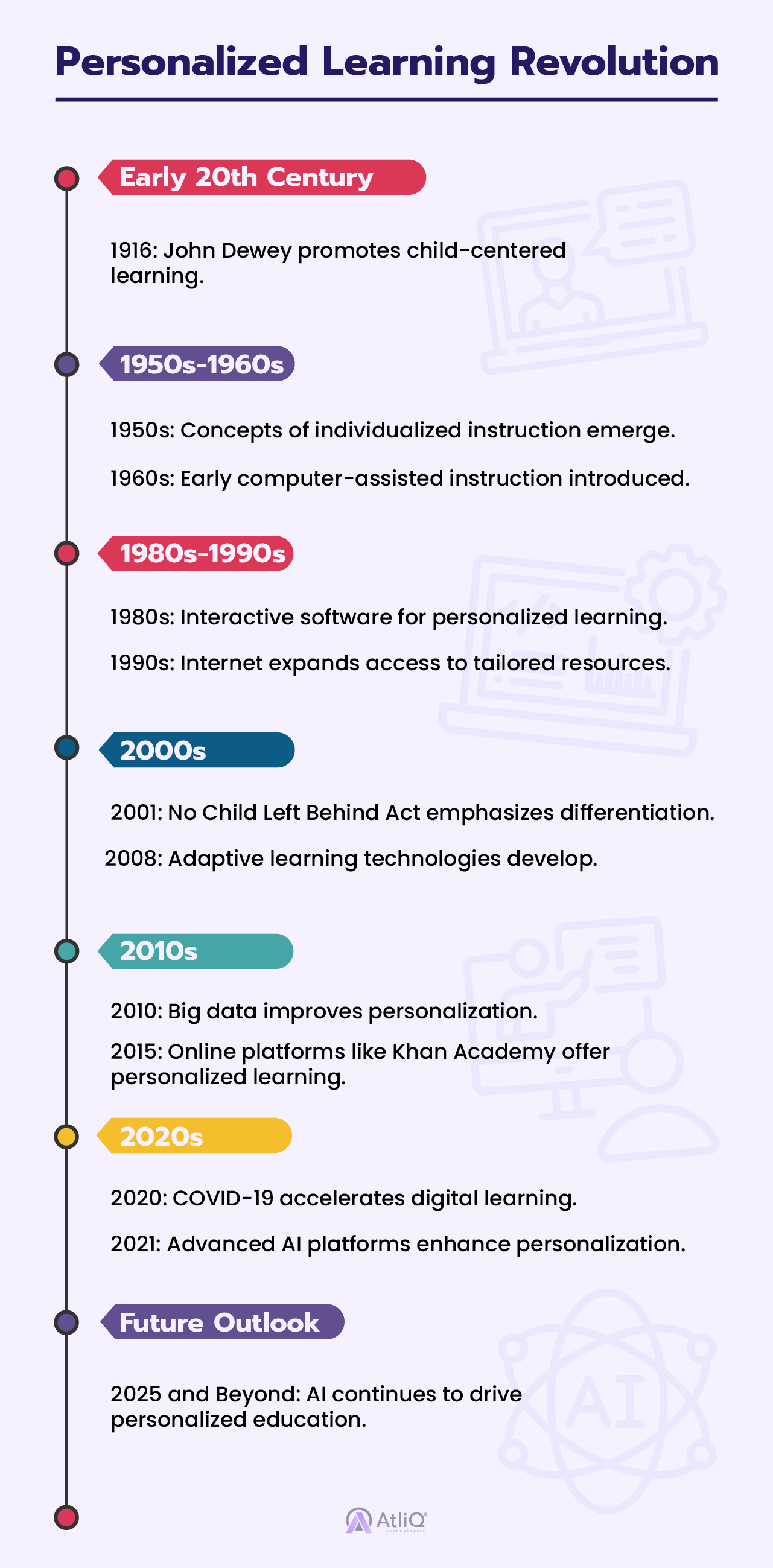
How AI is Transforming Personalized Learning?
Adaptive Learning Platforms: Adaptive learning technologies use artificial intelligence to customize educational experiences for individual students. These platforms adjust content in real time based on a student’s performance, learning style, and pace. By analyzing how students interact with the material, adaptive systems can modify the difficulty of tasks and provide targeted resources to address specific areas of need. This dynamic approach ensures that each student receives a tailored educational experience that evolves with their progress.
Role of AI in Analyzing Student Performance and Behavior: AI-driven analytics plays a crucial role in understanding and enhancing student learning. By processing large volumes of data on student performance, behavior, and engagement, AI tools can identify patterns and trends that may not be immediately apparent to educators. These insights help in pinpointing areas where students are excelling or struggling, enabling timely interventions and support.
How AI Creates Individualized Learning Pathways?: AI facilitates the creation of customized learning pathways by analyzing individual student data and generating personalized educational experiences. This process involves mapping out unique learning journeys that align with each student’s needs, preferences, and goals. AI systems can dynamically adjust these pathways based on ongoing assessments, ensuring that each student’s learning experience remains relevant and effective. AI is significantly enhancing personalized learning by making education more adaptive, insightful, and individualized. The integration of adaptive learning platforms, AI-driven analytics, and customized learning paths is transforming how students engage with and succeed in their educational journeys.
Benefits of AI-Driven Personalized Learning
Enhanced Student Engagement: AI-driven personalized learning significantly boosts student motivation by tailoring educational content to individual interests and needs. This customization makes learning more relevant and engaging, allowing students to progress at their own pace and receive immediate feedback. By addressing each learner’s unique preferences, personalized learning helps maintain interest and fosters a deeper connection to the material.
Improved Learning Outcomes: Personalized learning has been shown to enhance academic performance by providing tailored instruction that targets specific learning gaps. Studies have demonstrated that students who engage with personalized learning tools often achieve higher test scores and better overall grades. This approach ensures that students receive the support they need to master concepts, leading to more effective learning outcomes.
Efficient Use of Resources: AI optimizes the use of educational resources by streamlining lesson planning and focusing on areas where students need the most help. By automating routine tasks and providing actionable insights, AI allows educators to allocate their time and resources more efficiently. This targeted approach not only saves time but also ensures that educational materials and support are used in the most effective way possible.
Challenges and Considerations
Data Privacy and Security: One major concern with AI-driven personalized learning is the protection of student data. Safeguarding sensitive information from unauthorized access and ensuring compliance with privacy regulations is critical to maintaining trust. Schools and technology providers must implement robust security measures and transparent data practices to protect student information.
Equity and Access: Another challenge is ensuring equitable access to AI-powered tools. Disparities in technology availability can exacerbate existing educational inequalities. Addressing these gaps requires efforts to provide all students with the necessary devices and internet access, as well as ensuring that AI tools are accessible and affordable for diverse educational settings.
Teacher Training and Integration: Effective use of AI tools depends on comprehensive professional development for educators. Teachers need training to understand and implement AI technologies effectively in their classrooms. Ongoing support and resources are essential to help educators integrate these tools into their teaching practices and maximize their potential benefits.
Future Trends in AI and Personalized Learning
Emerging Technologies: AI-driven personalized learning is set to evolve with emerging technologies like augmented reality & virtual reality, creating immersive, interactive educational experiences. Advances in machine learning will allow for even more precise customization, adapting content in real-time to students’ needs and learning behaviors.
Integration with Other Educational Technologies: AI will increasingly integrate with other educational tools, such as learning management systems (LMS) and gamification platforms, to create holistic learning environments. These synergies will enable seamless transitions between different learning modes, offering a richer and more engaging educational experience.
Predictions for the Next Decade: Experts predict that AI will become more deeply embedded in education over the next decade, driving advancements in personalized learning. From fully automated tutoring systems to AI-assisted curriculum development, the future will see AI reshaping education with more intuitive, adaptive, and accessible learning solutions.
The rise of AI in personalized learning is transforming education by creating tailored experiences that adapt to each student’s unique needs and pace. From boosting engagement and improving outcomes to making learning more efficient, AI is shaping the future of education. However, as we embrace these advancements, it’s essential to address challenges like data privacy, equitable access, and the need for teacher training. As AI continues to evolve, the possibilities for more intuitive and effective learning are endless.
Ready to see how AI can personalize your learning journey?
